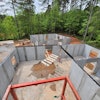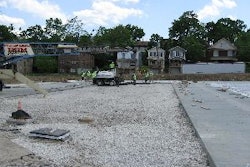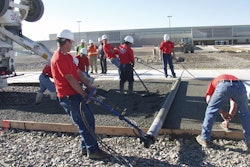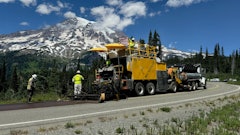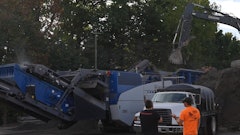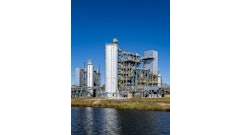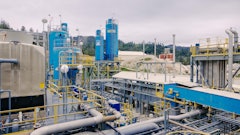
Josh Voorhees, E&E reporter
The construction industry urged Congress today to let states mandate the use of clean-diesel equipment for federally funded highway construction.
The Associated General Contractors of America joined the Clean Air Task Force in urging lawmakers to include the change in the next highway and transit bill that will serve as the de facto national transportation strategy for several years.
The groups want the new legislation to authorize states to require diesel emissions reductions at construction sites and to cover the cost of retrofitting or repowering equipment manufactured to meet earlier emissions standards.
The proposal would not alter the bidding process for contractors hoping to land federally funded transportation projects, and any additional costs of the emissions-savings measures would be covered by federal funding.
"If the federal transportation program can connect a continent and unite a people, there's no reason it can't help protect our environment," said Stephen Sandherr, AGC's chief executive. "This approach will reduce emissions without imposing crippling new costs that will hurt construction firms and their workers."
Under the plan, states would first require contractors who successfully bid for a project to identify the off-road diesel equipment they plan to use during the construction process. States would then consider a U.S. EPA-approved measure for cutting emissions from the equipment and issue orders to the contractors requiring that they pursue the best of the emissions-reducing options.
Federal funds to reimburse contractors for any increased costs they incur would come from either an existing federal air-quality program, the Congestion Mitigation and Air Quality Improvement Program, or from elsewhere in the transportation bill. Lawmakers provided states with $8.6 billion over the last four years through the mitigation program, which was created in the 1991 highway bill.
The group's proposal would also require EPA and the Transportation Department to provide a streamlined formula and process to allow states to quantify the emission reductions achieved through the changes to the construction equipment.
The nonprofit Clean Air Task Force, which has been pressing for the cleanup of diesel engines, said the support of AGC would be key to its lobbying efforts. "We are thrilled to be standing side by side with contractors on this," said Conrad Schneider, the group's advocacy director. "This is a great opportunity to clean up many of the millions of older diesel engines still in use."
The current highway law was set to expire at the end of September, but lawmakers extended it by one month as part of a larger bill continuing spending levels for a number of federal programs. House leaders are hoping to pass the next multiyear bill before the end of 2009, but the Senate and the White House instead want to see an 18-month extension of the current program to buy more time to consider what is expected to be a reform-minded bill.
The House effort, authored by Transportation and Infrastructure Chairman James Oberstar (D-Minn.), would streamline DOT, cutting more than 75 federal programs and consolidating highway funding under four core formula categories: critical asset investment, highway safety improvement, surface transportation, and congestion mitigation and air quality improvement.

